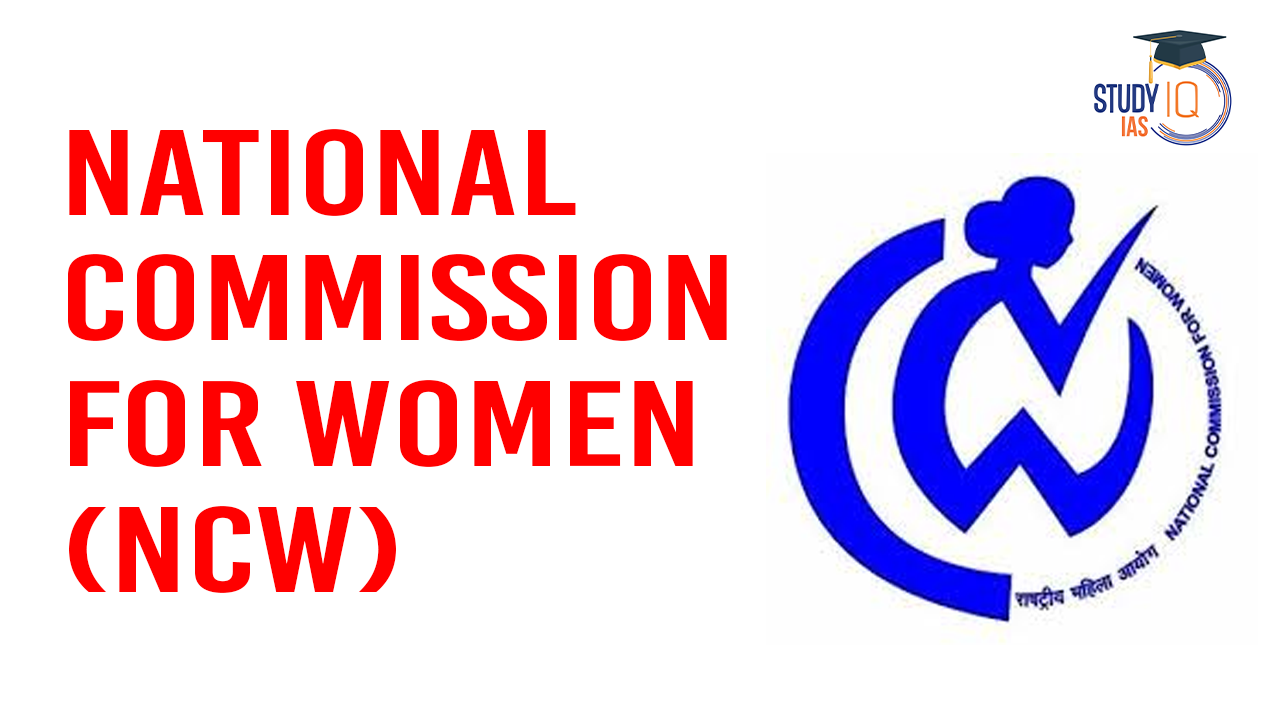Table of Contents
Context: The National Commission for Women has constituted a two-member fact-finding committee to investigate the sexual assault of an engineering student in the Anna University campus (Chennai).
About National Commission or Women (NCW)
- NCW is an autonomous and statutory body established in 1992 under the National Commission for Women Act, 1990, to protect and promote women’s rights in India.
- It is responsible for reviewing and addressing issues related to the rights of women and for making recommendations for the protection and promotion of these rights.
- Composition;
- Chairperson
- 5 Members (At Least 1 member from SC/ST)
- Member Secretary
- Appointment and Removal both by the Central Government.
- The Chairperson and every Member shall hold office for a period of 3 years.
- NCW under Section 10(1) (f) of the National Commission for Women Act, 1990 takes suo motu cognizance of matters where there is:
- Violation /deprivation of the rights of women.
- Non-implementation of laws enacted to protect women and also to achieve the objective of equality.
- Non-compliance with policy decisions, guidelines or instructions aimed at mitigating hardships and ensuring welfare and empowerment of women.
- Suo Motu cognizance may be taken on the basis of print, electronic and social media or any other information received by the Commission.
Objectives of NCW
- Safeguard Women’s Rights: Protect and promote the constitutional and legal rights of women in India.
- Address Grievances: Investigate and resolve complaints related to violations of women’s rights.
- Policy and Legislation: Review laws and policies affecting women and suggest amendments or new legislation for better implementation.
- Awareness and Advocacy: Create awareness about women’s rights and gender equality through campaigns, seminars, and public discourse.
Functions of NCW
- Legislative Reviews: Analyze existing laws and recommend measures to address gender biases and implementation gaps.
- Investigation and Inquiry: Take suo motu cognizance of issues affecting women and conduct inquiries into specific complaints.
- Advisory Role: Advise the government on policy formulation and implementation for women’s welfare.
- Research and Documentation: Undertake research, compile data, and prepare reports on women’s issues to support evidence-based policy-making.
- Monitoring Mechanisms: Monitor programs and schemes for women’s development and ensure their proper implementation.
- Awareness Campaigns: Promote awareness about rights, laws, and the importance of gender equality.


 Admiralty (Jurisdiction and Settlement o...
Admiralty (Jurisdiction and Settlement o...
 Enemy Property Act in India, Background ...
Enemy Property Act in India, Background ...
 Phone-tapping in India, Legal Framework ...
Phone-tapping in India, Legal Framework ...





















